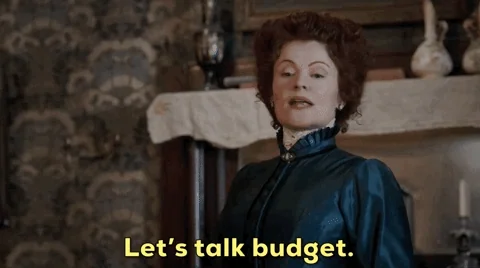Ever told yourself you were going to save…and then watched half your paycheck vanish on clothes, takeaway, or a last-minute weekend trip?
Meet Jordan, 23, juggling part-time work and study. The budget’s already tight, but somehow the bank balance still feels stressful. The problem isn’t how much money comes in — it’s the habits around how it goes out.
Maybe you're like Jordan, and knowing some practical ways to boost your money discipline can help you enjoy what you earn now and set yourself up for the future.

# 1: Track Where Your Money Goes
Why it works:
You can’t improve what you don’t measure — tracking shows exactly where your money goes.
Small daily costs add up faster than you think.
How to do it:
Example: An $8 daily lunch costs $160/month. Skipping two lunches a week could save $64/month — that’s $768/year for something more meaningful.
Pro tip: 💡
Group your spending into categories like “Food”, “Transport”, “Entertainment”, and “Other”. This makes it easier to spot problem areas.

Quiz
Jordan wants to save but runs out of money each week. They don’t know which costs are essential or optional. What should they do first?
#2: Set Small, Realistic Limits
Why it works:
Drastic changes often feel like punishment and rarely last.
Small, achievable goals build momentum and confidence.
Limits help you stay in control without feeling deprived.
How to do it:
Choose one category to adjust first — e.g., takeaway coffee, rideshares, or streaming services.
Set a weekly or monthly cap for “fun spending” and track it like you would a game score.
Keep “fun money” separate in a prepaid card or a different bank account to avoid overspending.
Example: If you currently spend $30/week on snacks, cut it to $20. That’s $10/week saved = $520/year for something more meaningful.
Pro tip: 💡
Use your banking app’s alerts to warn you when you’re close to hitting your limit — this is like having a coach in your pocket.

Quiz
Maya spends about $30 a week on snacks but wants to build savings without feeling punished. What’s the best first step?
#3: Automate Your Savings
Why it works:
Willpower is limited — automation removes temptation.
If the money leaves your spending account before you see it, you won’t miss it.
Consistent small deposits grow into big results over time.
How to do it:
Schedule a transfer to savings on payday, even if it’s just $10.
Use “round-up” features on bank apps — they send spare change from purchases into savings automatically.
Treat savings like a non-negotiable bill you pay to yourself.
Discipline example: Liam turns on his bank’s round-up feature. Each coffee, lunch, or bus fare rounds up to the nearest dollar. After 6 months, he’s saved $180 without even thinking about it.
Pro tip: 💡
Name your savings account after your goal (e.g., “Japan Trip” or “First Car”). It makes saving feel more motivating and personal.

Quiz
Alex wants to save more but always forgets to transfer money. What’s the best solution?
Take Action

Your feedback matters to us.
This Byte helped me better understand the topic.
